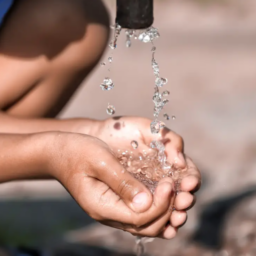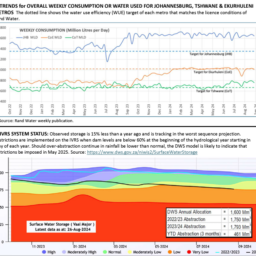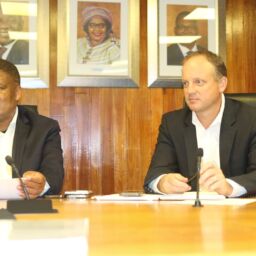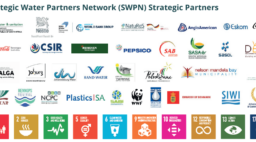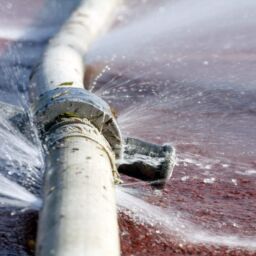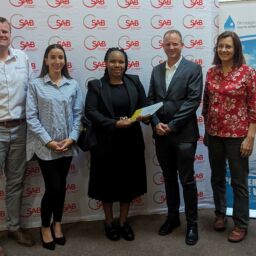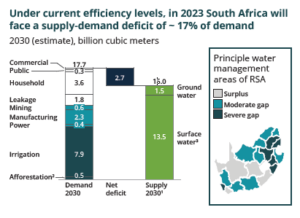
As South Africa faces increasing water scarcity challenges, the Strategic Water Partners Network (SWPN) has emerged as a pivotal force in addressing one of the most critical issues in water management: non-revenue water (NRW). Through strategic partnerships and targeted interventions, the SWPN is spearheading efforts to reduce water losses and improve water use efficiency across the nation.
Stage 0: Laying the Foundations – A Unique Collaborative Platform
Launched at the World Economic Forum in 2011, the SWPN provides a neutral platform for public, private, and nonprofit stakeholders to work collectively on closing the gap between water supply and demand. Co-chaired by the Director General of the Department of Water and Sanitation (DWS) and a private sector representative (currently South African Breweries), the SWPN is uniquely positioned to drive comprehensive solutions to water challenges.
Stage 1: Focusing the Approach – The Challenge of Non-Revenue Water
Non-revenue water, which includes physical losses through leaks, theft, and unbilled consumption, represents a significant drain on South Africa’s water resources and municipal finances. With physical water losses in municipalities reaching 1.4 billion m³/year – there is a severe gap between supply and demand, with over half of the 17% water gap expected in 2030. National NRW and water loss trends have also shown a steady increase in NRW over the past ten years, illustrating the pressing need for effective solutions to reduce demand.

No Drop Programme: Setting the Standard for Water Efficiency
One of SWPN’s landmark initiatives in tackling NRW has been the No Drop Programme. This innovative project, conceptualised under the SWPN partnership, is an incentive-based regulatory programme designed to assist municipalities in assessing and improving their water use efficiency, water losses, and non-revenue water. The No Drop Programme was successfully launched and applied to all municipalities in 2014 and a standard Performance-based Contract (PBC) for reducing NRW was launched. In 2018, a market study for reducing municipal NRW and a concept note was developed for an NRW fund.
Stage 2: Piloting in Polokwane – A Model for Municipal Collaboration
Building on the foundation laid by the No Drop Programme, SWPN took a hands-on approach to tackling NRW through this targeted municipal partnership. The Polokwane Water Partnership (PWP) was established to contribute to reducing NRW and supporting conservation in the Polokwane Municipality. The SWPN was appointed by the PWP to provide project management, coordination and fund administration support. This pilot stands out as a prime example of our approach to tackling NRW. Key interventions included:
• Night flow assessments
• Implementation of cost-effective repairs
• Installation of bulk meters and pressure-reducing valves
• Continuous monitoring of flow, pressure, and reservoir levels
Results have proven that NRW interventions are cost-beneficial, offer excellent return on investment and finance can be mobilised. The success of the Polokwane project has positioned SWPN as a leader in driving public-private collaboration to address water challenges.
Stage 3: Replicating in Nelson Mandela Bay – Scaling Up for National Impact
SWPN’s success in Polokwane led to the establishment of the Nelson Mandela Bay Water Partnership (NMB-WP). This partnership aims to reduce non-revenue water and support water conservation in the Nelson Mandela Bay Municipality. SWPN approached the Municipality to raise funds and to provide project management, coordination, and fund administration support for this partnership, which includes the implementation of five new bulk water meter installations. Through the partnership, the SWPN identified large potential for savings (3mL/day) due to the installation of these meters.
Stage 4: Reflecting on Learnings
Key learnings from SWPN’s journey include:
• Challenges at municipal level around technical and capital planning
• The economic viability of NRW projects with excellent return on investment
• The potential for ring-fencing water savings to leverage corporate and development community contributions
• The value proposition for businesses in reducing operational risks, enabling water-neutral operations, CSI opportunities related to job creation, economic development and health, and water offsetting to enable developments and investments
• The need for early-stage project preparation to fully enable Performance Based Contracting
Stage 5: Full-Scale Impact
SWPN is now working to replicate these successes across the country, with potential collaborations identified in multiple provinces. The organisation is focusing on:
• Leadership: Providing appropriate executive leadership aligned with DWS needs
• Partnerships: Serving as a neutral convening platform for task teams addressing critical water issues
• Project Delivery: Supporting and overseeing implementing partners in various water partnerships across South Africa
Key objectives for full-scale impact, include:
• Ensuring water security/resilience
• Identifying and catalysing local Water Partnerships between the public and private sectors
• Directly improving NRW
• Contributing to improving water quality
• Contributing to ensuring sustainable local municipalities
Looking Ahead: A Water-Secure Future
As South Africa continues to face water scarcity challenges, SWPN’s innovative approach to non-revenue water offers a promising path forward. By leveraging its unique position as a multi-stakeholder partnership, SWPN is driving tangible solutions that not only conserve water but also improve the financial sustainability of water utilities, paving the way for a more water-secure future for South Africa.



